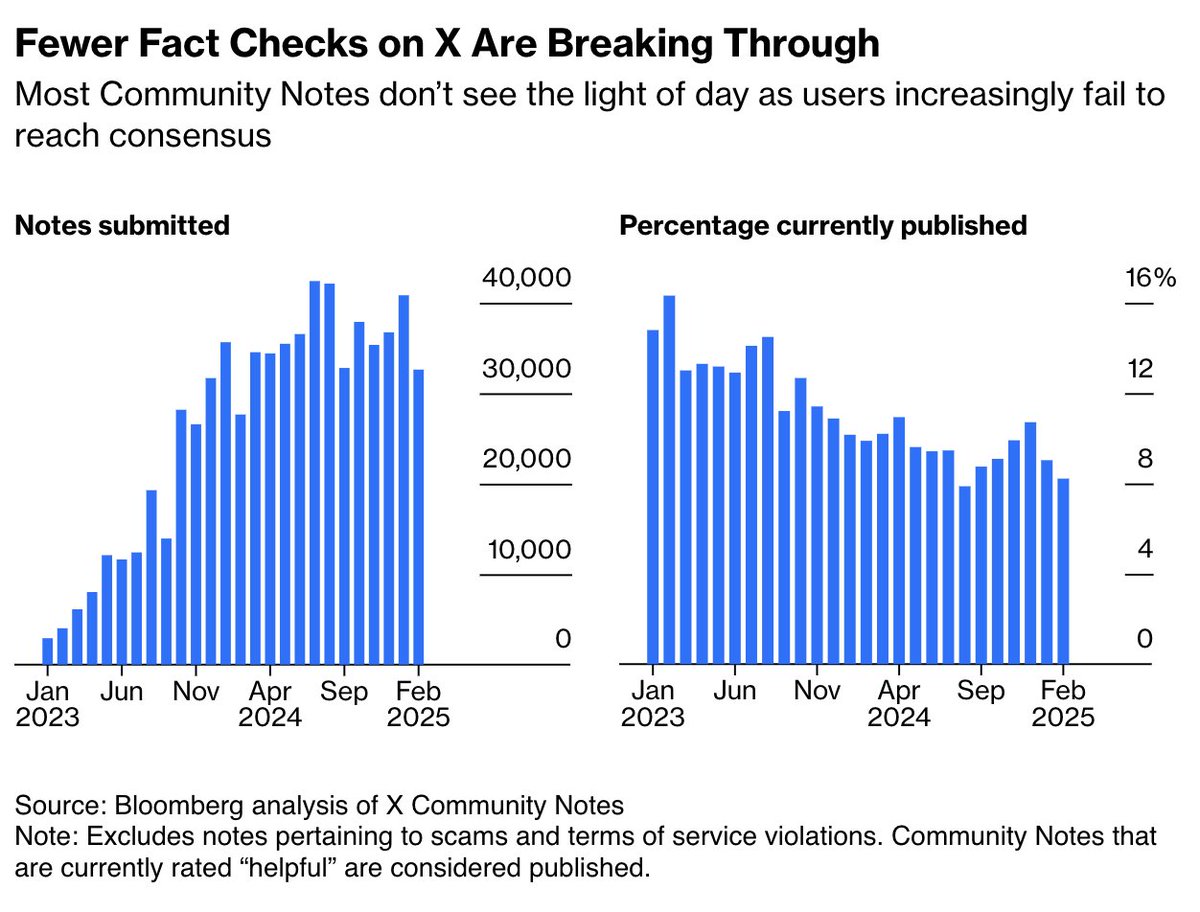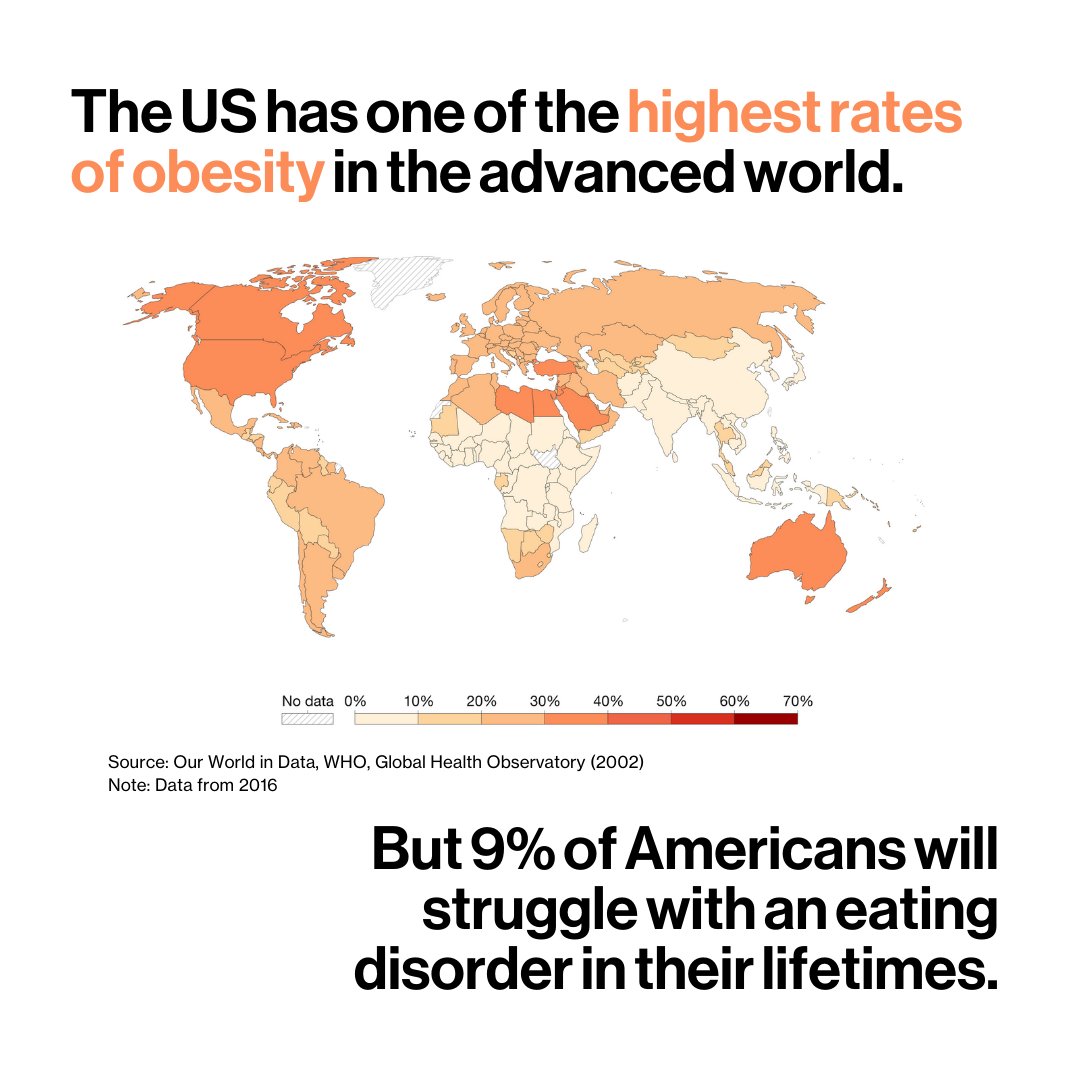#EqualityCantWait: 99 years after American women won the right to vote, the average full-time working woman still spends over 21 hours a week on housework bloom.bg/2zp2GPW
In 2019 we have:
✅Magical dishwashers
✅High-efficiency washing machines
✅Refrigerators that tell you when you’re running out of almond milk
How is it possible that women are spending the same amount of time on housework as they did in the 1900s? bloom.bg/2zp2GPW
✅Magical dishwashers
✅High-efficiency washing machines
✅Refrigerators that tell you when you’re running out of almond milk
How is it possible that women are spending the same amount of time on housework as they did in the 1900s? bloom.bg/2zp2GPW

Using data drawn from thousands of time diaries, one economist calculated how much time women spent on cooking, cleaning and childcare.
⌛️ In 1900, a married employed woman put in about 27 hours a week, and in 2005 she did … about 27 hours bloom.bg/2zp2GPW
⌛️ In 1900, a married employed woman put in about 27 hours a week, and in 2005 she did … about 27 hours bloom.bg/2zp2GPW

Among single women, the story is extremely discouraging: an unmarried working woman in 1900 did only about seven hours of home production; by 2005, the number had more than doubled bloom.bg/2zp2GPW 

Where is all this housework coming from?
🏡 Bigger houses take longer to clean
🧼 The standard of cleanliness has improved
⏰ We invest a lot more time in our kids bloom.bg/2zp2GPW
🏡 Bigger houses take longer to clean
🧼 The standard of cleanliness has improved
⏰ We invest a lot more time in our kids bloom.bg/2zp2GPW

More women are also living independently.
An unmarried woman in the early 20th century probably lived with her parents or in a boarding house. For many women today, hours spent at the laundromat or the grocery store have been the price of greater freedom bloom.bg/2zp2GPW
An unmarried woman in the early 20th century probably lived with her parents or in a boarding house. For many women today, hours spent at the laundromat or the grocery store have been the price of greater freedom bloom.bg/2zp2GPW

But that doesn't explain why single women’s housework hours have topped out at around 18 hours a week, while married women do almost 10 hours a week more.
🤔 It’s almost as if husbands … create more work? bloom.bg/2zp2GPW
🤔 It’s almost as if husbands … create more work? bloom.bg/2zp2GPW

Men put in more time than women at their jobs — about four more hours per week.
This is an economic problem: People who work longer hours can command higher salaries. Face time might not be productive, but it pays off bloom.bg/2zp2GPW
This is an economic problem: People who work longer hours can command higher salaries. Face time might not be productive, but it pays off bloom.bg/2zp2GPW

The most obvious solution would be to get men to do more housework, right?
🧹 The crazy thing is that they already do: Men put in more than four times as many hours of housework as their great-grandfathers. But they're still doing less than women bloom.bg/2zp2GPW
🧹 The crazy thing is that they already do: Men put in more than four times as many hours of housework as their great-grandfathers. But they're still doing less than women bloom.bg/2zp2GPW

Although gender equality is not a zero-sum game, housework is.
Among high-achieving women who decide to leave full-time work, two-thirds cite lack of household support from their husbands as a decisive factor bloom.bg/2zp2GPW
Among high-achieving women who decide to leave full-time work, two-thirds cite lack of household support from their husbands as a decisive factor bloom.bg/2zp2GPW

Shared chores have been proven to lead to happier marriages. Satisfaction increases when husbands offer their wives tangible help📈
This also benefits daughters: Those who observe their fathers doing household chores develop broader career aspirations bloom.bg/2zp2GPW
This also benefits daughters: Those who observe their fathers doing household chores develop broader career aspirations bloom.bg/2zp2GPW

So who are these amazing couples who split housework more equally?
In marriages in which the women have higher human capital than their husbands — more education, more earning power — husbands do more housework (although still not as much as their wives!) bloom.bg/2zp2GPW
In marriages in which the women have higher human capital than their husbands — more education, more earning power — husbands do more housework (although still not as much as their wives!) bloom.bg/2zp2GPW

• • •
Missing some Tweet in this thread? You can try to
force a refresh














